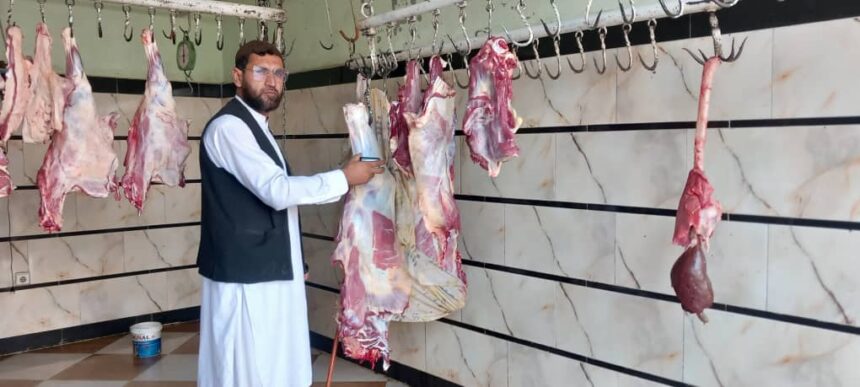RASC News Agency: The Taliban’s Ministry for the Propagation of Virtue and Prevention of Vice has issued a decree labeling the public display of sheep carcasses and fatty tails as “Religiously Forbidden” and a cause of “moral deviation and public provocation.” In an official warning to butchers in Kabul, the Taliban announced that any failure to cover the fatty tails of slaughtered sheep with cloth will result in the immediate closure of their establishments. According to the decree, such displays not only violate Islamic principles but also “provoke and distract the public.”
This directive represents the latest in a series of restrictive measures imposed on butchers and meat vendors by the Taliban. Previously, the group had introduced various regulations on slaughterhouses, citing religious and cultural considerations as justification for their actions. Critics argue that these new rules are an unnecessary extension of the Taliban’s moral enforcement, further interfering with everyday business operations. Many see this as part of a broader agenda to impose their ultra-conservative interpretation of Islamic law on Afghanistan society. These restrictions often appear symbolic, diverting attention from the pressing economic and humanitarian crises plaguing the nation.
Since their return to power, the Taliban have systematically implemented sweeping controls over nearly every aspect of daily life. These include severe limitations on women’s freedoms, restrictions on cultural practices, and regulations targeting businesses. Observers note that instead of addressing Afghanistan’s dire socio-economic challenges, the Taliban have prioritized enforcing rigid and often arbitrary measures under the guise of preserving religious orthodoxy. This latest prohibition has sparked a wave of criticism, with detractors emphasizing the need for practical governance rather than moral policing. Many Afghanistanis question whether such actions genuinely serve the public interest or merely deepen the suffering of an already struggling population.






